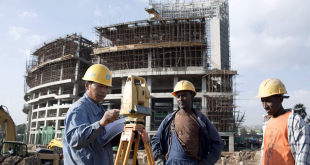Studying the Belt and Road Initiative, after the fact that too few people in the West pay attention to it at all, a more striking disappointment is the fact that the Western media seem to have made up their collective minds on the subject with preconceptions and political bias.
Much of their coverage persists with blaming China, carrying on a framework of deeply negative perspectives on the BRI painted by the Center for a New American Security, a United States-based think tank, in its report last year.
As a result, they got a lot of things wrong, often missing the point of the BRI and the benefits it could bring to partner countries.
The report makes two central points: Economically, the projects aren’t beneficial to the host country, as they are wasteful, unnecessary, opaque and place undue burden on the host state’s coffers. Politically, they present risks of erosion of sovereignty and environmental degradation and jeopardize the host country’s data integrity.
Such statements bespeak the ignorance with which BRI projects are perceived.
An obvious example to consider is the Hambantota port deal. The Western media’s take is that China lent money to build the port. When the bills were due, Sri Lanka could not pay and, consequently, China requisitioned the port. But this is not what happened.
The port still belongs to Sri Lanka, since it merely sold the right to operate to China Merchants Port Holdings Co for $1.12 billion due to its accumulated losses of $300 million by 2016. After bringing in a capable operator, the port was able to generate a profit, and last year reached the mark of 1 million tons per year.
The issues with the port have always been about public purse management rather than an imaginary, rapacious Chinese hegemon attempting to exploit a much poorer country.
The reality is that the project has created new trade routes for the local economy and new jobs for Sri Lankans. It is already paying for itself, which is exactly what BRI projects are designed to do.
After unjustly castigating the port project, not a single publication has issued a retraction on the matter three years after the naysayers have been proved wrong.
Things get murkier when examining the BRI under a political prism. The Western media and government critics’ perennial theme on Chinese joint ventures is graft and political influence.
Let’s consider the Malaysian example. The Western media likes to belittle BRI projects as “aircraft carrier-ready” ports and have cheered the postponement of the rail link. Now that the dust has settled, the fact that the projects have been reinstated is a clear validation of the project’s concept.
The “new broom” brought in by the new Malaysian administration could not find much wrong with the original project.
The Western narrative can be summarized as the BRI’s exploitation of Malaysia, when, in reality, it has always been the problem of Malaysia putting its house in order. It has never been about China treading on its partner country’s national sovereignty or economic interests.
This also showcases China’s flexibility in implementing the BRI projects. Once it becomes clear that the host country, Malaysia in this case, wants to review its spending commitments, the Chinese side has accommodated the host.
China views the host nations as equal partners, and it is more than willing to adjust should the local popular sentiment demand it. Has China’s accommodating attitude been lauded by the Western media? Not once.
The truth is that China is not employing the BRI to extend its influence at the expense of its partner countries, as some Western media would have you believe.
It is just a straightforward developmental initiative to help emerging economies achieve their economic potential, usually by developing their infrastructure, a vital backbone for any economic development.
The Chinese companies are involved for their capital and expertise, and their share of interest is very clearly specified. It is neither aid nor influence-buying. No underhanded dealings are involved.
Unlike some leading Western democracies, China does not comment on, much less interfere with, the internal politics or leadership of other countries. On that basis, it was able to deal with the governments of all countries to help lift their people out of poverty, as China has done so successfully with its own people.
The Western media coverage of the BRI has clearly been distorted by ideological bias, in some cases obviously egged on by various political leaders. Hence, it is up to the Chinese stakeholders, mostly media and financial institutions, to rectify the misconceptions among readers and investors.
But Western media’s penchant for demonizing China must cease, as it will serve no useful purpose for any party.
The author is an analyst, portfolio manager and private equity adviser focusing on commodities and infrastructure projects, with particular emphasis on energy and the Belt and Road Initiative.
Source: China daily.com.cn
Check Also
Chinese contractors boost Kenya’s construction sector through tech transfer, says regulator
Chinese contractors are helping advance Kenya’s construction sector by transferring technologies, the industry regulator said. …
 Africa -China Review Africa -China Cooperation and Transformation
Africa -China Review Africa -China Cooperation and Transformation
